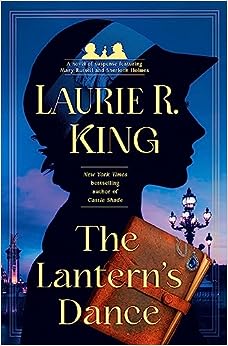 The Lantern's Dance (Mary Russell and Sherlock Holmes, #18) by Laurie R. King
The Lantern's Dance (Mary Russell and Sherlock Holmes, #18) by Laurie R. King Format: eARC
Source: supplied by publisher via Edelweiss, supplied by publisher via NetGalley
Formats available: hardcover, ebook, audiobook
Genres: historical fiction, historical mystery, mystery
Series: Mary Russell and Sherlock Holmes #18
Pages: 300
Published by Bantam on February 13, 2024
Purchasing Info: Author's Website, Publisher's Website, Amazon, Barnes & Noble, Kobo, Bookshop.org, Better World Books
Goodreads
Mary Russell and Sherlock Holmes, hoping for a respite in the French countryside, are instead caught up in a case that turns both bewildering and intensely personal.
After their recent adventures in Transylvania, Russell and Holmes look forward to spending time with Holmes' son, the famous artist Damian Adler, and his family. But when they arrive at Damian’s house, they discover that the Adlers have fled from a mysterious threat.
Holmes rushes after Damian while Russell, slowed down by a recent injury, stays behind to search the empty house. In Damian’s studio, she discovers four crates packed with memorabilia related to Holmes’ grand-uncle, the artist Horace Vernet. It’s an odd mix of treasures and clutter, including a tarnished silver lamp with a rotating an antique yet sophisticated form of zoetrope, fitted with strips of paper whose images dance with the lantern’s spin.
In the same crate is an old journal written in a nearly impenetrable code. Intrigued, Russell sets about deciphering the intricate cryptograph, slowly realizing that each entry is built around an image—the first of which is a child, bundled into a carriage by an abductor, watching her mother recede from view.
Russell is troubled, then entranced, but each entry she decodes brings more questions. Who is the young woman who created this elaborate puzzle? What does she have to do with Damian, or the Vernets—or the threat hovering over the house?
The secrets of the past appear to be reaching into the present. And it seems increasingly urgent that Russell figure out how the journal and lantern are related to Damian—and possibly to Sherlock Holmes himself.
Could there be things about his own history that even the master detective does not perceive?
My Review:
As Holmes himself once said, “Art in the blood is liable to take the strangest forms,” but as this 18th book in the continuing chronicles of Sherlock Holmes and his apprentice-turned-wife Mary Russell opens, Holmes is considerably more worried about the form that blood might take spilled from his son’s veins on the floor of the French cottage where Holmes adult son, Damien Adler, his young daughter Estelle and his wife-to-be Dr. Aileen Henning have set up house and home in Damien’s inheritance from his mother Irene Adler.
Someone, a man Adler described as a ‘lascar’ broke into his home in the middle of the night, kukri in hand, to do who knows what damage or cause who knows what type of mayhem.
Adler does his best to convince himself it was all a prank gone wrong. But Holmes, with too many enemies still lurking in his shady past and even his more circumspect present, is not nearly so sanguine about the whole thing. There are, after all, plenty of criminals who would like to put the squeeze on Sherlock Holmes by threatening his son and his granddaughter, and most likely even more powers and potentates who would be interested in having some leverage against that puller of the British Empire’s strings and minder of its webs, Mycroft Holmes, by kidnapping his nephew and great-niece.
Holmes’ primary concern, desire and dilemma, all in one gordian knot of emotions he is reluctant in the extreme to untangle, is to get Damien, Aileen and Estelle somewhere safe so that he can run the meager clues about the break in and its elusive perpetrator to ground. Possibly to put them in that ground if necessary.
Damien wants to continue his work as an up-and-coming surrealist artist – AND he wants his father to explain what the hell is going on. In other words, Damien Adler wants to be treated as the adult he is as well as protect his family.
While Russell is, at least at the outset, a bit of a ‘fifth wheel’ in this family drama of which she is more of an appendage that a central part. Unfortunately for her, an appendage with a sprained ankle, hobbling around on crutches, in the house where her predecessor, the famous and famously beautiful Irene Adler, once ruled. If her ankle wasn’t already making her miserable enough, this entire situation has more than enough undercurrents to discomfit even Russell.
So the dust on the initial break in settles with Damien in Paris, Holmes following behind to check for traps, tagalongs and any possible gathering of confederates, while Russell is left behind in Irene Adler’s old house, going through the detritus of codes long left unbroken and old family secrets. Only to discover that the reason for the break in has been hidden in plain sight, and that too many of the truths that Sherlock Holmes has believed all his life were lies all along.
And that more of that art in the blood that his son received in full measure from his mother’s well-known artistic family bore other, more mysterious fruit much closer to its source.
Escape Rating A: This one begins slowly, as Russell languishes – a bit – alone in the countryside while Holmes hares off to Paris and points beyond. At first, it felt like the story was creeping along, much as Russell is doing with her crutches. But Russell’s temporary infirmity forces her to sit still – something that chafes at her no end.
But that stillness – and the lack of ability to rush about after Holmes – forces her to take the time to explore her briefly confined circumstances. And thereby, quite literally, hangs this tale.
Also, and fascinatingly so, as Russell’s leg gets better, as she graduates from crutches to a cane to walking unaided, as she picks up her pace the story increases its pace in tandem. By the time she is able to unravel all of the mysteries, she is searching Paris on foot, chasing down leads and putting the pieces together at her – and her story’s – usual brisk pace.
So initially, while Holmes is the active partner and Russell is stuck in place, he’s actually spinning his wheels, trying to safeguard someone who refuses to obey orders, looking over his shoulder at every moment, and always operating at an information deficit as he’s forced to react to circumstances rather than think first and then act.
Russell has that luxury. She’s stuck, she has time to think, and plenty to think about. While Holmes and the rest of the family are running, she’s questioning the locals and exploring the house, where she finds clues that lead her to the true heart of the mystery – and to its bittersweet conclusion.
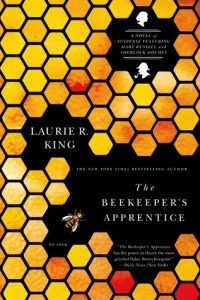 In the end, I did love this entry in the series, although it took me a bit to get there because of that slow start. But now that I’ve finished, I’m left with the impression that this is more of a family story than it is the kind of mystery that has more often been featured in this series, and in the Holmes canon and Russell Kanon in general. On this, the thirtieth anniversary of the publication of The Beekeeper’s Apprentice – the story where Russell nearly tripped over Holmes on the Sussex Downs – it feels right that we go back to, not their beginning, but rather to Holmes’ own beginning, and get a much clearer picture of where he came from and the forces that made him – and Mycroft for that matter – the men they became.
In the end, I did love this entry in the series, although it took me a bit to get there because of that slow start. But now that I’ve finished, I’m left with the impression that this is more of a family story than it is the kind of mystery that has more often been featured in this series, and in the Holmes canon and Russell Kanon in general. On this, the thirtieth anniversary of the publication of The Beekeeper’s Apprentice – the story where Russell nearly tripped over Holmes on the Sussex Downs – it feels right that we go back to, not their beginning, but rather to Holmes’ own beginning, and get a much clearer picture of where he came from and the forces that made him – and Mycroft for that matter – the men they became.
In other words, The Lantern’s Dance feels like a story that will be utterly riveting for fans of the series, but would not make a good place for a newcomer to start. If you have not yet had the pleasure of Mary Russell’s acquaintance, I highly recommend that you begin at the beginning, with The Beekeeper’s Apprentice, and settle in for a long and delightful read.

 The Kamogawa Food Detectives (The Kamogawa Food Detectives, #1) by
The Kamogawa Food Detectives (The Kamogawa Food Detectives, #1) by  Speaking of magic, however, if the taste of The Kamogawa Food Detectives is as appealing to you as it was to me, if you would like to try something similar with a more overt hint of magic (I say more overt because it could easily be claimed that what these food detectives do IS magic) you might want to try
Speaking of magic, however, if the taste of The Kamogawa Food Detectives is as appealing to you as it was to me, if you would like to try something similar with a more overt hint of magic (I say more overt because it could easily be claimed that what these food detectives do IS magic) you might want to try 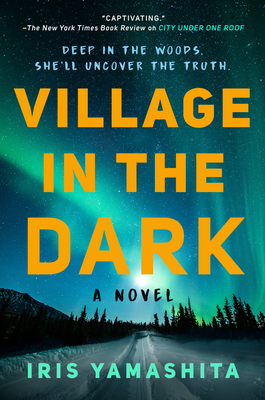 Village in the Dark (Cara Kennedy, #2) by
Village in the Dark (Cara Kennedy, #2) by 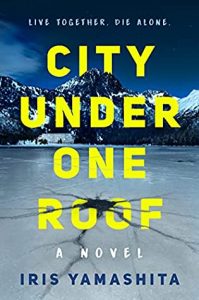 Escape Rating B: Part of what made
Escape Rating B: Part of what made 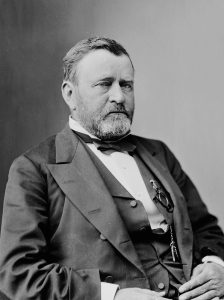


 Current Giveaways:
Current Giveaways: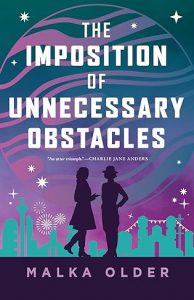 Blog Recap:
Blog Recap: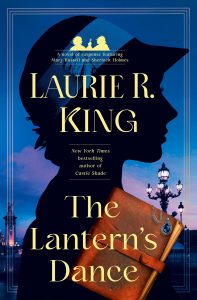 Coming This Week:
Coming This Week:










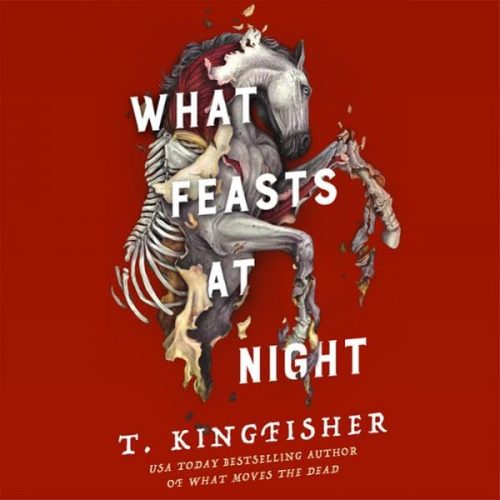 What Feasts at Night (Sworn Soldier, #2) by
What Feasts at Night (Sworn Soldier, #2) by 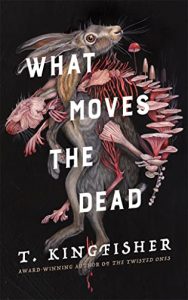 Escape Rating A-: I’m not sure whether to say that What Feasts at Night isn’t quite as creepy as
Escape Rating A-: I’m not sure whether to say that What Feasts at Night isn’t quite as creepy as 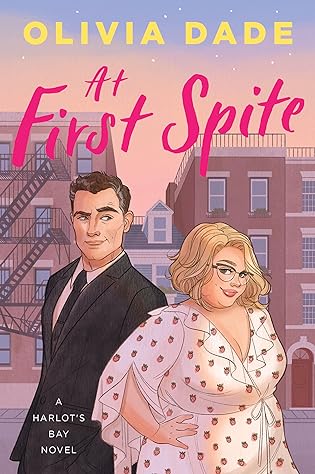 At First Spite (Harlot's Bay #1) by
At First Spite (Harlot's Bay #1) by 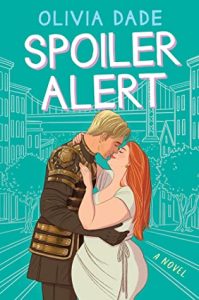 Escape Rating A-: It’s clear early in At First Spite that the narrow confines of Spite House aren’t nearly wide enough to handle ALL of the emotional baggage that Athena, Johnny, and Matthew have deposited there, in spite of Athena being the only person actually living within its walls.
Escape Rating A-: It’s clear early in At First Spite that the narrow confines of Spite House aren’t nearly wide enough to handle ALL of the emotional baggage that Athena, Johnny, and Matthew have deposited there, in spite of Athena being the only person actually living within its walls.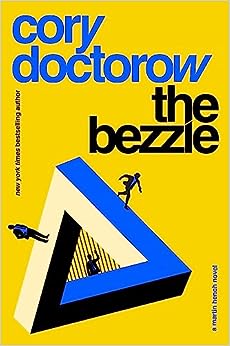 The Bezzle (Martin Hench #2) by
The Bezzle (Martin Hench #2) by 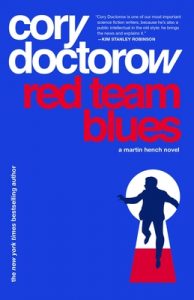 Escape Rating A: The Bezzle is a LOT of things, all of which are fascinating and make for a compelling read, but absolutely none of which are remotely science fiction, whether it is marketed as such or not. And not that SF readers won’t enjoy The Bezzle, because they certainly will and I absolutely did.
Escape Rating A: The Bezzle is a LOT of things, all of which are fascinating and make for a compelling read, but absolutely none of which are remotely science fiction, whether it is marketed as such or not. And not that SF readers won’t enjoy The Bezzle, because they certainly will and I absolutely did.